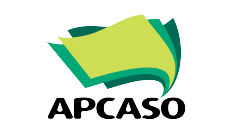The new Global Fund Strategy redefines the direction of its investments – towards countries with high disease burden and least ability to pay, as well as interventions for populations that are disproportionately impacted by HIV, TB, and malaria. Aligned to this, its Sustainability, Transition and Co-Financing (STC) policy frames transition as a process that should be guided by the long-term sustainability of the responses on the three diseases as an overarching goal. While the norms and standards outlined in the STC policy guarantee that transitions will not occur suddenly, their implications for the Asia-Pacific region underscore the urgency of ensuring that civil societies, including communities of key and vulnerable populations are able to engage in the process and influence norms and standards on transition. From July 19th to 21st, APCASO, with support from the Global Fund Communities, Rights, and Gender (CRG) Department, organised a regional meeting in Bangkok, Thailand aimed at facilitating the development of a community- and civil society-defined regional sustainability and transition framework, and to define technical assistance priorities and needs to effectively engage in their country’s STC and related processes.

Participants share their experience from Day 1
The regional meeting convened 40 participants from 12 countries along with regional network representatives, technical agencies and development partners. RD Marte, Executive Director of APCASO, opening the meeting, highlighted, “with the declining international funding, we need to make sure that communities remain central and are involved in financing conversations, and help ensure that transition do not cause key and vulnerable populations fall through programming cracks.”

“With the declining international funding, we need to make sure that communities remain central and are involved in financing conversations, and help ensure that transition do not cause key and vulnerable populations fall through programming cracks.”- RD Marte, APCASO Executive Director
The three-day meeting gave country participants and regional network representatives and partners a space to exchange critical STC-related information and developments in the region, with the Global Fund CRG and Board representatives sharing ongoing STC and eligibility discussions and UNAIDS presenting tools on country transition preparedness processes that are ongoing in the region. The meeting also gave an opportunity to share other current regional initiatives relating to transition, including Asia Pacific’s Global Fund-supported civil society-led regional initiative, Sustainable HIV Financing in Transition (SHIFT). At the meeting, communities and civil society representatives from 12 countries agreed to a list of 6 key positions to serve as guides in advocating for a comprehensive transition towards sustainable HIV, TB, and malaria responses for all.
These are:
- Inclusive and universal sustainable HIV, TB, and malaria responses in terms of

“Transition needs to be entirely focused on getting key populations to be taken seriously, accepted and engaged meaningfully by governments. Without this, we are doomed,” said Maura Mea of Papua New Guinea on the importance of involving key populations and vulnerable communities in STC processes.
accessibility, allocative efficiency, and equitability
- Effective scale up to the level necessary to achieve national, regional, and global HIV, TB, and malaria goals, centered on the needs of and supportive of the roles of communities and civil society
- Country-owned and led, domestically resourced responses
- Safety nets for rights-based gender-transformative HIV, TB, and malaria programmes particularly for key and vulnerable populations
- Accessible and affordable medicines and diagnostics
- Integrated, multi-sectoral, multi-partnership approach in strengthening health systems
APCASO will be following up participating countries to develop their respective technical assistance (TA) requests around STC proceeding the regional meeting. These TA requests will make sure that key populations communities and civil society will be capacitated to engage in STC processes more meaningfully.
Check the photos from the Asia Pacific STC meeting on our Facebook page.
Download the PDF version of this communique here.

